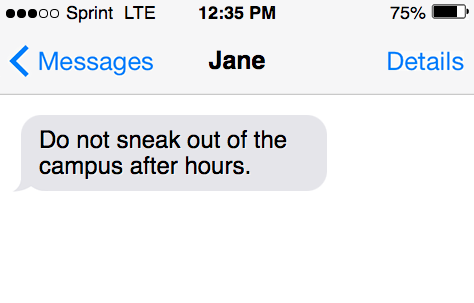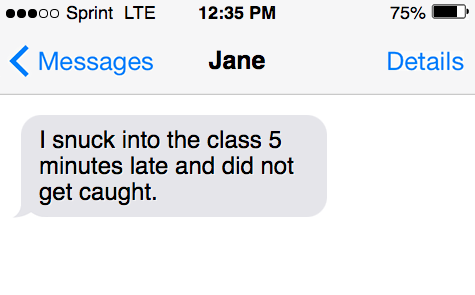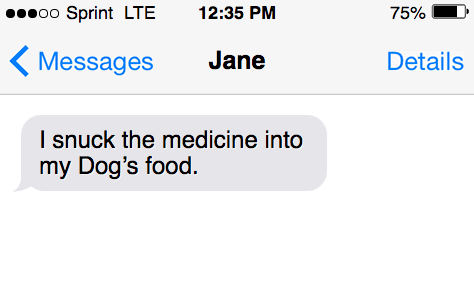What is the difference between sneaked vs. snuck? Are both referring to the plural form of the base word “sneak?” How are they used in American English?
Learn about the differences between these two words in this short English worksheet…
What is the plural form of “sneak?”
The word “sneak” has a correct plural form in English. The plural form of sneak is “sneaks.” The word has rather limited application, as is visible from its form.
The word “sneaks” primarily refers to an action that is repeatedly done. For example, “The mouse sneaks around often.”
For example:
- Rita sneaks out of her house every night after her parents are asleep.
- John’s daughter sneaks him a piece of Apple pie each time it is made in their house.
Since it refers to a repeated action, the plural form “sneaks” does not have variations based on tense.
What is the past tense of “sneak?”
The past tense version of the word “sneak” has not only one but two words. The words “snuck” and “sneaked” are both valid and universally accepted past tense words for the word “sneak”. Both these words can be used in sentences, and they would be grammatically correct in either case.

For example:
- She snuck into the house after everyone was asleep.
- She sneaked into the house after everyone was asleep.
- I snuck in my assignment while the teacher was not looking.
- I sneaked in my assignment while the teacher was not looking.
Both these sentences are grammatically correct and display how the words snuck and sneaked can be used interchangeably.
While both the words are grammatically correct, there are some contexts in which snuck should not be used. For instance, if creating formal writing, the word “sneaked” should get used.
| Word | Definition |
| Sneak (verb) /snēk/ | move or go in a furtive or stealthy manner. |
| Snuck (past tense verb) | move or go in a furtive or stealthy manner. |
The word “sneaked” is more universally accepted. You can use it anywhere, and it will be correct. The word “snuck,” on the other hand, while correct, may not be considered correct in all forms of writing (like essays, for example).

Examples of “sneak” in sentences
Some examples of “sneak” in sentences can be as follows:
- If you sneak out one more time, I will punish you.
- Do not sneak out of the campus after hours.
- She used to sneak out of class every chance she got.
- I can sneak you in after everyone has left.
- Can you sneak some dessert from the reception?
Examples of “snuck” in sentences
Some examples of the word “snuck” in sentences include:
- I snuck into his apartment after his parents left.
- I snuck into the class 5 minutes late and did not get caught.
- I snuck into the bar without paying a cover charge.
- She snuck some popcorn in her bag without the movie hall security finding out.
- I snuck the medicine into my Dog’s food.
- His butler snuck him some unhealthy food while he was on a diet.
How to remember which form to use
If you can’t remember which form of the past tense of “sneak” you should use, there is a simple rule to remember. The word “sneaked” can be used everywhere. This word has universal acceptance and application. In short, you cannot go wrong with the word “sneaked.”
The word “snuck” is also technically acceptable to be used anywhere. However, there’s some debate around its legitimacy. The word “snuck” should be avoided in formal conversation or writing.

Is it “sneak a peek” or “sneek a peak?”
Between “sneak a peek” and “sneek a peak,” the correct phrase is “sneak a peek”.
The phrase means getting a secret look at something before it is officially revealed. A stealthy glance or look at something that a person was not supposed to see or was not supposed to see until later.
The phrase “sneek a peak” is invalid because sneek is not a word. Secondly, the word “peak” is a homonym of the word “peek” and its meaning differs entirely. The word “peak” refers to the highest point of something. For example, a mountain peak.
On the other hand, the word “peek” means to see. Thus, the phrase “sneak a peek” is grammatically correct.
Inside this article
Fact checked:
Content is rigorously reviewed by a team of qualified and experienced fact checkers. Fact checkers review articles for factual accuracy, relevance, and timeliness. Learn more.
Core lessons
Glossary
- Abstract Noun
- Accusative Case
- Anecdote
- Antonym
- Active Sentence
- Adverb
- Adjective
- Allegory
- Alliteration
- Adjective Clause
- Adjective Phrase
- Ampersand
- Anastrophe
- Adverbial Clause
- Appositive Phrase
- Clause
- Compound Adjective
- Complex Sentence
- Compound Words
- Compound Predicate
- Common Noun
- Comparative Adjective
- Comparative and Superlative
- Compound Noun
- Compound Subject
- Compound Sentence
- Copular Verb
- Collective Noun
- Colloquialism
- Conciseness
- Consonance
- Conditional
- Concrete Noun
- Conjunction
- Conjugation
- Conditional Sentence
- Comma Splice
- Correlative Conjunction
- Coordinating Conjunction
- Coordinate Adjective
- Cumulative Adjective
- Dative Case
- Determiner
- Declarative Sentence
- Declarative Statement
- Direct Object Pronoun
- Direct Object
- Diction
- Diphthong
- Dangling Modifier
- Demonstrative Pronoun
- Demonstrative Adjective
- Direct Characterization
- Definite Article
- Doublespeak
- False Dilemma Fallacy
- Future Perfect Progressive
- Future Simple
- Future Perfect Continuous
- Future Perfect
- First Conditional
- Irregular Adjective
- Irregular Verb
- Imperative Sentence
- Indefinite Article
- Intransitive Verb
- Introductory Phrase
- Indefinite Pronoun
- Indirect Characterization
- Interrogative Sentence
- Intensive Pronoun
- Inanimate Object
- Indefinite Tense
- Infinitive Phrase
- Interjection
- Intensifier
- Infinitive
- Indicative Mood
- Participle
- Parallelism
- Prepositional Phrase
- Past Simple Tense
- Past Continuous Tense
- Past Perfect Tense
- Past Progressive Tense
- Present Simple Tense
- Present Perfect Tense
- Personal Pronoun
- Personification
- Persuasive Writing
- Parallel Structure
- Phrasal Verb
- Predicate Adjective
- Predicate Nominative
- Phonetic Language
- Plural Noun
- Punctuation
- Punctuation Marks
- Preposition
- Preposition of Place
- Parts of Speech
- Possessive Adjective
- Possessive Determiner
- Possessive Case
- Possessive Noun
- Proper Adjective
- Proper Noun
- Present Participle
- Prefix
- Predicate



